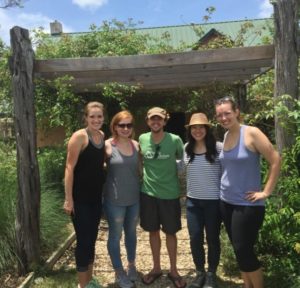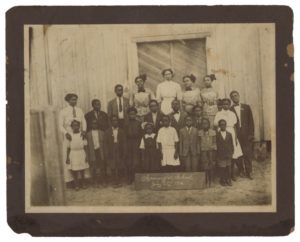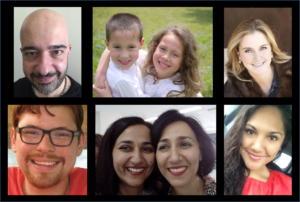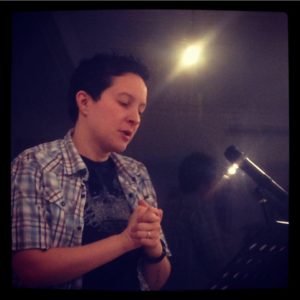By Matthew Polk
The Prosper Waco initiative only works if community members come up with ideas that we can put into action together. You know more about your life and your community than anyone. You know what it will take for you to be able to take the next step toward success.
Prosper Waco is about:
- More kids being ready to learn when they start Kindergarten
- More students (and adults) finishing a college degree or certificate that will get them a good job
- More people knowing where they need to go to get the best healthcare…and being able to afford it
- More people living a healthy lifestyle and losing weight
- More youth (16-24 year olds) getting a job
- More people getting the job training they need to make a better living
- More people being able to save for their future
These are things we all want. There are ways to make them happen for people in our community. The City of Waco and this community are serious about helping people move forward successfully. But we can’t solve your problems without you. We need to work together to find answers to these challenges.
How can you help? Come share your ideas about how best to help people in our community improve their education, health, and financial security.
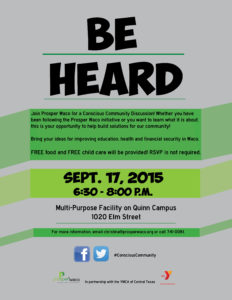 Day: Thursday, September, 17th
Day: Thursday, September, 17th
Time: 6:30-8:00 p.m.
Where: City of Waco Multi-Purpose Building on Quinn Campus (next to the Doris Miller Y)
Details: FREE FOOD! FREE CHILDCARE!
(Thanks to our awesome partners at the Doris Miller Y for working with the kids!)
No need to RSVP. Bring yourself and invite others. This is a chance for us to have a conscious community discussion about how we can work together to help people improve their education, health, and financial security. You don’t need to know anything about Prosper Waco to be able to contribute to the conversation.
People want to invest in a community that is working together. Next week will be the first visit of our partners from the National Resource Network (NRN). This team of experts is funded by the Department of Housing and Urban Development to assist cities that are dealing with the impact of poverty.
The NRN team visited Waco in June and was impressed with the City leadership and their support of the Prosper Waco initiative. Like many others, the NRN team commented that Waco is ahead of many other cities in taking a coordinated approach to addressing poverty-related issues and helping people improve their education, health, and financial security.
The NRN experts will be visiting Waco on a monthly basis over the next year in order to help our community implement the strategies that we decide are the best bets for achieving the Prosper Waco goals listed above. Because they have worked with cities facing similar challenges across the country, the NRN team will be able to help us identify the best practices for doing work related to improving education, addressing community health needs, and developing the local workforce.
Next week, the NRN team will be meeting with a large number of people who are involved in the Prosper Waco initiative. When they return in October, we want to be able to share with them more feedback from the community about what needs to be done to make Prosper Waco a success. This is why we need you to be part of the discussion on September 17th.
Continue to stay informed about the Prosper Waco initiative and share what you learn with your friends and neighbors. Visit our website—www.prosperwaco.org—to find links to our monthly show on the City’s cable channel. Sign up for our email newsletter at the top of the homepage or click Contact to send us a quick comment or question. Check out the Calendar to see when various working groups are meeting, and click Get Help Locally to find resources for improving your education, health, and financial security.
Feel free to call us anytime at (254) 741-0081 for more information.
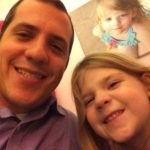 This Act Locally Waco Blog post was written by Matthew Polk. Matthew is Executive Director of Prosper Waco. Prior to that, he served as Superintendent of Rapoport Academy Public School. He and his wife attended Baylor, and after spending a few years in the northeast, they returned to Waco to raise their family. They have four children, ages 8 to 3 months. You can contact him at [email protected].
This Act Locally Waco Blog post was written by Matthew Polk. Matthew is Executive Director of Prosper Waco. Prior to that, he served as Superintendent of Rapoport Academy Public School. He and his wife attended Baylor, and after spending a few years in the northeast, they returned to Waco to raise their family. They have four children, ages 8 to 3 months. You can contact him at [email protected].
The Act Locally Waco blog publishes posts with a connection to these aspirations for Waco. If you are interested in writing for the Act Locally Waco Blog, please email [email protected] for more information.
by Kaylyn Schultz
I’m a big believer in the idea of “loving where you live”. Not just ‘liking’ where you live but loving it—loving the city, its spirit, and its people. Loving on the people (those amazing fellow Wacoans) and helping out those people in any way one can—whether it be mighty and life changing or the little everyday random acts of kindness. This summer I had the incredible opportunity to help our city and some of its people in my own way. It was a blessing and a wonderful, eye-opening experience. I was given an internship at the Waco-McLennan County Public Health District.
Now I saw pictures of some of the more exotic places my friends went off to for their internships (*cough cough* HAWAII.) and may have sighed once or twice with longing after that more glamorous summer life. However, staying in Waco, Texas, was definitely the best fit for me and for a couple reasons. One, I had to take a British Literature class and being in the same city as your class is usually a good plan to accomplish said class. And two, I really wanted to learn what my city and its people needed from a health standpoint. Let me tell you: I got a good picture.
I got to work on a few projects in my internship. I was in charge of running all social media platforms for the Health district (Cue shameless plug. Go ‘like’ the Health District on Facebook!) and updating their website for Live Well Waco (check that one out too. It’s pretty awesome). I got to have so much fun and learned a ton about reaching out to people and getting their attention. I was also a part of the Health district’s Our Children, Their Nutrition team. This program, OCTN, was created to bring nutrition education to children ages 8-12 years old. This is a crucial age and we want them to be armed with a full arsenal of nutrition knowledge so they may make the smartest choices concerning food. We taught kids detailed nutrition information and tips like the amino acids in protein, the different kinds of carbohydrates and fats, and to check the color of their urine in order to see how hydrated they are! [That last one really seemed to stick with them all for some reason!] I was also fortunate enough to help out with the 8 Week Zumba Challenge!—I have consequently discovered that I really love Zumba and want to become an instructor. I gave a short nutrition lesson before the workouts started and tied in how these parents can take it home to their kids and stop poor dietary habits before 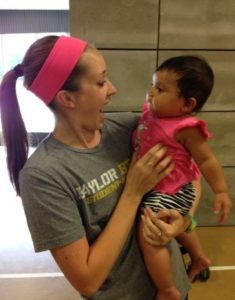 they begin. I also got to hold some babies while their awesome mommas got to work out and I didn’t mind one bit.
they begin. I also got to hold some babies while their awesome mommas got to work out and I didn’t mind one bit.
And I loved it all.
I was all over Waco, sometimes all in one day, teaching nutrition and health and spreading awareness for exciting opportunities to improve people’s wel-lbeing. I got to experience some awesome things. But also some not so awesome things.
I loved teaching the kids for OCTN. They are absolutely hilarious. That time frame of life, 8-12 years, is certainly an interesting time. At 8 years old they are DESPERATE to be called on. They want to answer a question. They’ll raise their hands even if they have absolutely nothing to say. They just want to show they are making the effort. It is so sweet and they still give hugs! At 9-10 years old, they learn SO quickly. They grasp the scientific side of nutrition well and ask further questions. (One time, we were asked how salt is made. Uhhh… Mind blown.) They don’t want to be considered young like the 8 year olds and they look up to the 11-12 year olds. Then… something terribly scary happens. They want to be “cool”. Desperately. [Dun Dun Dahhhhh!] Our beautiful, funny, sassy, intelligent 11 and 12 year olds just wanted to look cool in front of their friends. And, unfortunately, answering our questions and being respectful isn’t what the ‘cool’ kids are doing. These kiddos were by far the most challenging. But they certainly gave me the best stories.
On DAY ONE, a 12 year old boy said to his friends as I walked away (and so he apparently thought out of earshot) that I am “hot”. Ladies, haven’t you always dreamed of being called ‘hot’ by a twelve year old?? Dreams coming true here folks. Another day, while I was actually leading the lesson on dietary fats, one 11 year o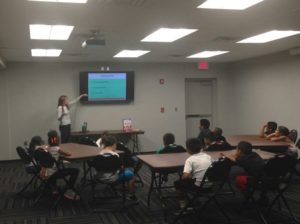 ld boy winked at me as I walked up to his table. Oy vey. I swiftly kicked him out. Now, I can appreciate the hilarity of this ‘compliment’ of sorts perhaps in another situation. Though maybe not one in which I am in a teaching position and am 10 years older than the giver of the wink. All of this was explained to him and he was allowed back in for the snack. [*cue awkward eye contact here*] You’d think he expected me to thank him. How are 11 year old boys so confident?? I had to talk to some of my guy friends here in Waco to attempt to glean some sort of understanding into the 11 & 12 year old male mind… as you may imagine I did not have much luck. They don’t even understand their own minds is the best I could come up with.
ld boy winked at me as I walked up to his table. Oy vey. I swiftly kicked him out. Now, I can appreciate the hilarity of this ‘compliment’ of sorts perhaps in another situation. Though maybe not one in which I am in a teaching position and am 10 years older than the giver of the wink. All of this was explained to him and he was allowed back in for the snack. [*cue awkward eye contact here*] You’d think he expected me to thank him. How are 11 year old boys so confident?? I had to talk to some of my guy friends here in Waco to attempt to glean some sort of understanding into the 11 & 12 year old male mind… as you may imagine I did not have much luck. They don’t even understand their own minds is the best I could come up with.
While some lessons left me laughing and shaking my head in wonder, others left me somewhat heartbroken. One day, at one of our three locations, I was tying a braided yarn bracelet this little lady had made in our activity part of the lesson that day. She looked up at my face and asked if I was wearing makeup, to which I replied “Yes, some mascara.” She then told me that she likes “the stuff that makes your skin lighter”. I asked if she meant foundation, the stuff that makes skin all even toned. She said yes… because she doesn’t like the color of her skin, it’s “too dark” she said. This sweet, beautiful, incredible, smart little girl told me she wished her skin was lighter. I needed a moment. I then told her that makeup like that is for hiding things and she had absolutely nothing to hide. I told her that her skin is beautiful, smooth, flawless. Now why in the world wasn’t she hearing this every day at home? Why??? We, unfortunately, are surrounded by things telling us, especially women and young girls, to compare ourselves to others, that the way we are just isn’t quite good enough. Improving ourselves in order to be healthier is one thing, disliking how God made us is another matter entirely. Negativity is everywhere. However, something I will take from these beautiful, fun-loving kiddos is, no matter what’s going on in my personal life or in the stress behind the scenes, I can still be happy, positive, and kind to those around me. I’ve learned that whether someone is struggling with their weight, causing chronic health issues or if their struggle is on the inside and they’re dealing with something along the spectrum of mental health, we can all be kind, take it seriously, and be aware of what a simple encouraging word can do for someone. I’ve learned how important education and spreading the word about the importance of being active every day are. I’ve learned how I can help people to learn how important it is to really understand the food we put in our bodies. And I’ve learned it doesn’t take too much to begin to make a difference.
It starts with kindness and encouragement. Throw in some fun, maybe versatile nutrition education, and some opportunities to come together and get active. We may just end up with a healthier, happier Waco for generations to come. I’m so thankful to the Public Health District and can’t wait to start the rest of my life, helping people, and trying to make a positive difference in their well-being.
Lots of love to you beautiful people.
 This Act Locally Waco blog post was written by Kaylyn Schultz. Kaylyn is originally from Celina, Tx and is going into her senior year at Baylor University, majoring in Health Science Studies. After graduating in May of 2016 she plans to begin working toward obtaining her Master’s degree in Public Health. Kaylyn is also a high jumper for the Baylor Track and Field team and loves the challenge, teammates, discipline, and Christian atmosphere being a part of such an incredible team provides. Kaylyn can usually be found reading any book she can get her hands on or watching movies with friends, her stupendous little sister, Lauren, or her wonderful and supportive boyfriend, Marcus. Her main goal for her future career is to decrease the prevalence of obesity and resulting chronic disease in our nation and thus improve quality of life for millions of children and adults.
This Act Locally Waco blog post was written by Kaylyn Schultz. Kaylyn is originally from Celina, Tx and is going into her senior year at Baylor University, majoring in Health Science Studies. After graduating in May of 2016 she plans to begin working toward obtaining her Master’s degree in Public Health. Kaylyn is also a high jumper for the Baylor Track and Field team and loves the challenge, teammates, discipline, and Christian atmosphere being a part of such an incredible team provides. Kaylyn can usually be found reading any book she can get her hands on or watching movies with friends, her stupendous little sister, Lauren, or her wonderful and supportive boyfriend, Marcus. Her main goal for her future career is to decrease the prevalence of obesity and resulting chronic disease in our nation and thus improve quality of life for millions of children and adults.
The Act Locally Waco blog publishes posts with a connection to these aspirations for Waco. If you are interested in writing for the Act Locally Waco Blog, please email [email protected] for more information.
by Louis Gayton Garcia
Many of the families of Mexican descent living in Waco today are descended from families who arrived here in the late 1800’s and early 1900’s.
In 1719, using a map created by cartographer Guillame Delisle, French explorer Jean Baptiste Bena de la Harpe said he had found a place called Honecha or Houecha (WACO). The people there had black circles around their eyes causing him to remark that it was “Where the raccoon eyed people lived…”
In the early 1800’s when the first white expeditions arrived in “Huaco,” (which, by the way has been spelled at least 30 different ways through the years), they commented that the natives here were always fighting the Mexicans. Writings from the 1830’s say that the natives were living around a fresh underground cool water source. The site was located on what is now 6th St. between Jefferson St. and Waco Drive. The natives probably used the whole area from 6th St. to the Brazos River as their camp. Despite initial conflict, many of the existing tribes Huacos, Cherokees, Chiricahua etc… assimilated into the Mexican community after the arrival a of the white and black settlers, because of bounties placed upon them and the hatred towards them.
In later years a section of this area — from the Brazos River to 4th St and from Washington St. to Barron St. — was called “The Reservation.” It could be the name came about because this is where the natives were gathered up before they were sent off to the reservations in Oklahoma, or maybe it was because Jacob de Cordova, who founded Waco, wanted land along the Brazos to be “reserved” for City of Waco for public use. Regardless of the origin of the name, “The Reservation” eventually became known as Waco’s legalized red light district, and remained so until 1917 when prostitution became illegal.
This area was also home to a part of town known as Little Mexico, Mexican Sandtown. It later became known as the “Calle Dos” (Second Street). Many Mexicans arriving in Waco in the late 1800’s and early 1900’s moved into the Calle Dos area, especially after 1917.
In the late 1800’s there was a Baptist Mission in the 300 Block of North Second St. In 1907 this became the Mexican Baptist Mission which is now the First Mexican Baptist Church of Waco at 4th and Jefferson. The building in the 300 block of North Second St. would become the “Sociedad Mutualista Mexicana de Jornaleros.” Established July 6th, 1924. The purpose of the SSMdeJ was to assist the Mexicans with their rights, jobs, education, funerals, etc. (It is now located on LaSalle Ave.) The SSMdeJ became the center of gatherings in Waco for the Mexicans. All major celebrations were held there: Sept.16th celebrations, Cinco de Mayo, weddings, dances, and quinceañeras, among others. The St Francis on the Brazos Catholic Church was formed in 1924 blessed in 1925 at the corner of Third Street and Jefferson, adding to the sense of community.
Part of the reason that this neighborhood became so popular among Mexican people who were moving into Waco was that there were several fresh underground water sources in this area. “La Pila” (the fountain), a significant source of fresh underground water, was a popular community gathering spot where residents would catch up with each other to share news and gossip while collecting the water they needed for drinking, bathing, etc.
The 1926 Waco City Directory shows that while many Mexicans lived on farms surrounding Waco — cotton was king in the early 1900’s and many Mexican people worked in the cotton fields — Mexican families were especially concentrated in the Calle Dos area.
The Calle Dos are was cleared in the late 1950’s and early 1960’s by urban renewal and, with that, a neighborhood where Mexican families, and later their descendants, had been living as a community for generations passed into history.
I was born Luis Gaitan Garcia on a farm in Speegleville. I went to school on my first day and came home as “Louis Gayton Garcia.” I am Chairman of the Waco Hispanic Museum (WHM), a 501(c)3 organization that got its start as in idea from City Council Woman Alice Rodriguez. The idea was to acknowledge the long history of the Hispanic/Mexican Community of Waco, many of us whose families arrived in the late1800’s and early 1900’s.
Many Hispanics still in Waco today have ties to the Calle Dos area. The WHM is working on several projects to make sure this part of Waco and Waco History is not forgotten.
We currently have an exhibit at the Historic Waco Foundation’s Fort House, 403 South 4th St. It is open Sundays 1- 4 or by special request by calling 7535166. We are finalizing plans with the City of Waco to move into a section of the South Waco Community Center as we continue to raise funds for our Museum.
On September 5 we are having our Fourth Annual Dance to raise money for the museum. Music will be provided by Johnny Bustamante and the LA Band. Mosaic will be playing Tejano gospel music, and DJ Jam will be on hand. Cost will be a $10 donation. Time will be 8 PM to 12 AM. Location will be The Mutualista Hall, 2214 S 15th St.
On September 28th – October 4th, we will begin work to excavate “La Pila” (the fountain) that played a central role in the Calle Dos community. It was buried by urban renewal and is being brought back to life with the assistance of WISD, City of Waco and Central Texas Archaeological Resources (Katherine Turner–Pearson owner). The public will be invited to participate in this dig.
If you are interested in learning more about the Waco Hispanic Museum or getting involved, please contact me by email at [email protected] or by phone at 254.548.9730. Donations may be mailed to the CenTex Hispanic Chamber of Commerce, 911 LaSalle Ave, 76706 or Genco Federal Credit Union, 731 N. Valley Mills Dr., 76710. Please note on all checks that they are for the Hispanic Museum.
 This Act Locally Waco blog post was written by Louis Gayton Garcia. Louis is retired from, American Railcar Industries. He started there in 1980 sweeping floors. He eventually became the Quality Assurance Manager at Longview, Texas, and a Quality Assurance Auditor, working in plants in the U.S., Canada, and Mexico. He is a deacon at Lake Shore Baptist Church where he enjoys singing in the choir and volunteering for the food pantry. He is President of the Board of Directors of Mission Waco/ Mission World, and a Member of Sociedad Mutualista Mexicana de Jornaleros est.1924 ( society of mutual Mexican journey men involved in the Hispanic community) and Chairman of the Waco Hispanic Museum. For fun he plays the accordion.
This Act Locally Waco blog post was written by Louis Gayton Garcia. Louis is retired from, American Railcar Industries. He started there in 1980 sweeping floors. He eventually became the Quality Assurance Manager at Longview, Texas, and a Quality Assurance Auditor, working in plants in the U.S., Canada, and Mexico. He is a deacon at Lake Shore Baptist Church where he enjoys singing in the choir and volunteering for the food pantry. He is President of the Board of Directors of Mission Waco/ Mission World, and a Member of Sociedad Mutualista Mexicana de Jornaleros est.1924 ( society of mutual Mexican journey men involved in the Hispanic community) and Chairman of the Waco Hispanic Museum. For fun he plays the accordion.
The Act Locally Waco blog publishes posts with a connection to these aspirations for Waco. If you are interested in writing for the Act Locally Waco Blog, please email [email protected] for more information.
By Ashley Bean Thornton
It’s been interesting to see the conversation about Prosper Waco in the Trib lately. Is Prosper Waco a wise investment that will give us the traction we need to make progress against our stubbornly high rate of poverty? Or, is it a waste of time and money wrapped in a thick blanket of bureaucratic doublespeak? Time will tell I suppose. At this point, honestly, I think it could go either way. It’s up to us.
I don’t work for Prosper Waco, and I’m not on the board of Prosper Waco, but I was a member of the Poverty Solutions Steering Committee. In 2010 we were appointed by City Council to come up with strategies for reducing poverty in Waco. We made six broad strategic recommendations, including this one:
“Strategy 6 – Establish an organization to provide on – going coordination and leadership for our work together. – Poverty has been a challenge for Waco throughout its history. Success in reducing poverty will require sustained leadership and administration. The suggested goals proposed by the [Poverty Solutions Steering Committee] task teams give us important direction regarding how to move forward, but these goals are only a first step. On-going rounds of planning, implementation and evaluation will be needed to make our aspirations our reality. To effectively leverage our community resources, we need an organization whose central purpose and first priority is to coordinate this work. This organization will not provide direct services, but will provide the organizational scaffolding to stimulate, synchronize and harmonize efforts throughout the community. A key element for the success of this organization will be support and engagement from throughout the community; it must be a city-wide public/private partnership.”
The city council agreed with that recommendation and Mayor Malcolm Duncan and several others have worked very hard to establish such an organization which we now know as Prosper Waco. Is it perfect? Nope. Is it a good step? I think so.
I’m sure you know as well as I do about all the terrific work that is already going on in Waco to help people and families with low incomes: Mission Waco, Christian’s Men & Women’s Job Corps, EOAC, Salvation Army, AVANCE, Talitha Koum, Communities In Schools, Habitat for Humanity, Waco Community Development Corporation, NeighborWorks, Caritas, Shepherd’s Heart, Goodwill, Restoration Haven…the list goes on and on. I’m going to hurt some feelings by leaving someone off of this list, but truly, the whole list would take more space than this article allows. These groups are helping hundreds of people every day. Maybe thousands.
I think I can say with confidence that every single person who works at every single one of these organizations and agencies would love it if there were fewer people who needed their services. Yet despite all this good intention and hard work, our rate of poverty remains steady. The image that comes to mind is of dozens of individual gears spinning separately. It appears we have made about as much progress as we are going to make by spinning separately. The idea behind Prosper Waco is that our opportunity for progress lies in our ability to connect our gears. The purpose of Prosper Waco is to help us work together better, and by doing that to multiply the amount of benefit we are getting from the amount of work we are doing.
It feels to me like, as a community, our thinking about the issue of poverty is getting more sophisticated. We used to focus most of our energy on the question, “How can we help poor people?” and we have helped a lot of people. Now we are looking more deeply at the root of the problem. We are realizing that if more of us are making enough money to live on (and a little to spare), then our community is better off, and we are all better off. Our question has changed. We are starting to ask ourselves, “How can we build the kind of community where fewer of us are poor and more of us are making enough money to spend and invest here?” To answer this question we need more of us involved than just the good people who are already working their tails off at our various social service agencies. We need every part of our civic and economic system. We need the businesses, the chambers of commerce, the schools (public, private and higher-ed), the churches, the city and county governments, the people who have first hand knowledge of what it is to live on a very low income, and the people who have never had to worry about having enough, and all of the rest of us in between.
Do you believe getting all these different groups of people to work together and pull in the same direction will be an easy task? If you do, then you have not tried it. Pulling these gears together will require time, energy, creative thinking, and plenty of work.
It requires people to chase down the people who need to be involved, and convince them to get involved, and then convince them again when they start to fade away. It requires people who can learn the “language” of each group and serve as interpreters when they misunderstand each other. It requires people who know how to run meetings so that they are effective and meaningful. It requires people to do the research in between the meetings so that we have real information to work from instead of just pooled intuition and opinion. It requires people to check and see what other cities are doing so that we can steal their best ideas. It requires people to figure out how to “keep score,” to figure out whether we are making any progress or not, and what’s working and what’s not. It requires people who can help the rest of us make plans and then help us implement those plans across organizational boundaries. It requires keeping up with what we have done, and what we said we would do, and who has followed through and who needs to be reminded and urged forward. It requires someone to push against the powerful force of “the way we do things around here” and get us to consider doing things a different way.
This is the work that Prosper Waco was created to do: The work of helping us work together.
Is it working? For heaven’s sakes, No! Not yet! Prosper Waco is in its infancy. It has barely learned to turn over on its stomach much less crawl or walk. This work is momentous and challenging and there are basically no instructions. It will take a good little while for it to work.
Will it work? I don’t know. I think there is a good chance that it can. Certainly a better chance than if we just keep doing the same things we have been doing. Other people are starting to believe in us. The National Resource Network is willing to invest $300,000 or so in us because they believe it can work.
The purpose of Prosper Waco is not to do the work of making our community stronger, but to provide the support we, the members of this community, need in order to work together more effectively to make our community stronger. If we don’t work, Prosper Waco won’t work.
We can stand back and watch until we are sure that everything is exactly to our satisfaction before we step in. We can criticize without being willing to help make things better. We can drop out as soon as we get frustrated. If we do that, it probably won’t work. Or, we can pitch in even when things aren’t perfectly organized and planned. We can focus on what we can do instead of what we can’t do. We can look for ways to solve problems together, and listen to each other. We can challenge each other and try new things. We can stick with it even when it’s driving us crazy. We can speak up when we think we see a better way, and offer to do work instead of coming up with work for other people to do. If enough of us do that, we can probably make some progress.
It’s up to us whether Prosper Waco works or not. There is no them and us. Them IS us. We have work to do.
Do you want to get involved? For more information, visit the website: www.prosperwaco.org.
 This Act Locally Waco blog post is by Ashley Bean Thornton, the Manager of the www.www.actlocallywaco.org website and the editor of the Friday Update newsletter: The WHOLE Enchilada. The Act Locally Waco blog publishes posts with a connection to these aspirations for Waco. If you are interested in writing for the Act Locally Waco Blog, please email [email protected] for more information.
This Act Locally Waco blog post is by Ashley Bean Thornton, the Manager of the www.www.actlocallywaco.org website and the editor of the Friday Update newsletter: The WHOLE Enchilada. The Act Locally Waco blog publishes posts with a connection to these aspirations for Waco. If you are interested in writing for the Act Locally Waco Blog, please email [email protected] for more information.
By Amanda L. Smith, LMSW
As a social worker who is living and working in Waco, it’s important to me that our community has access to quality and affordable healthcare. Sadly, prioritizing mental health issues often goes ignored or is dismissed. I’m deeply honored to work with people who are ready to look for a new approach to embracing life. For most of my clients, intense emotions, intrusive thoughts, self-damaging behaviors, and suicidal thinking stand in the way of their happiness and peace of mind.
Thankfully there’s a treatment that may help.
Dialectical behavior therapy (or DBT) was created by Marsha Linehan—a psychologist at the University of Washington—to help people who have suffered with chronic thoughts of suicide, have made multiple suicide attempts, or engaged in self-harming behaviors such as cutting, burning, hair-pulling, and skin-picking.
DBT consists of several components, including weekly individual therapy, group skills training, telephone coaching in between appointments, and a therapist consultation team. While DBT is based on the ideas of cognitive-behavior therapy, the treatment also emphasizes mindfulness, validation strategies, and a balance of both acceptance and change. The goal of participating in a DBT treatment program is to help people who are experiencing roller-coaster emotions to create a “life worth living.”
For over 20 years, research has consistently demonstrated that DBT has made a lasting difference in helping many people to feel better. Most recently in the May 2015 issue of JAMA Psychiatry, the authors of a research study concluded that participation in a DBT skills training group significantly reduced the frequency and severity of suicide attempts and instances of self-injury in women diagnosed with borderline personality disorder. The good news is that there is now lots of evidence that suggests that DBT may be beneficial for people facing addictive behaviors, post-traumatic stress disorder, eating disorders such as bulimia and binge-eating disorder, and even attention deficit hyperactivity disorder.
What are Dialectics?
The word “dialectical” refers to the synthesis of opposing ideas, thoughts, and emotions. In DBT, this is referred to as Wise Mind.
One essential dialectic in DBT is the assumption that the person in treatment is doing the best that they can at any given moment and—at the same time—needs to work hard to change. Another dialectic would be that people can practice self-compassion and acceptance while they also gently push themselves towards healthier ways of living and responding to every day problems.
Dialectical thinking helps individuals to navigate through the extremes of black-and-white thinking so that they can make better decisions about important areas in all of our lives as they relate to school, work, relationships, and finances. Once this skill is learned and practiced over an extended period of time, life becomes less chaotic, less stressful, and more fulfilling.
Hope for Recovery
Recovery from suicidal thoughts and self-harm unfortunately doesn’t occur in a nice linear and predictable way. It’s usually full of encouraging starts, disappointing stops, and progress that can sometimes be challenging to spot even on the best of days.
Living a life filled with constant fear, sadness, and anger can be devastating. Making an investment in an evidence-based treatment like DBT can yield great returns. Over the years, I’ve met with countless individuals who have been empowered through DBT and have gone on to complete college, enjoy successful careers, and participate in meaningful relationships with others. Without a doubt, DBT can help change lives for the better.
Perhaps you or someone you love is ready to create their own life worth living.
For more information about DBT and how you or someone you know might enter into DBT therapy contact Amanda Smith by email at [email protected] or visit the website at dbt-waco.com or www.hopeforbpd.com.
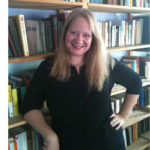 Amanda L. Smith, LMSW is a graduate of the Diana R. Garland School of Social Work at Baylor University. Her web site is www.hopeforbpd.com and her book, The Dialectical Behavior Therapy Wellness Planner: 365 Days of Healthy Living for Your Body, Mind, and Spirit, will be available in September.
Amanda L. Smith, LMSW is a graduate of the Diana R. Garland School of Social Work at Baylor University. Her web site is www.hopeforbpd.com and her book, The Dialectical Behavior Therapy Wellness Planner: 365 Days of Healthy Living for Your Body, Mind, and Spirit, will be available in September.
The Act Locally Waco blog publishes posts with a connection to these aspirations for Waco. If you are interested in writing for the Act Locally Waco Blog, please email [email protected] for more information.
By Stephen Swanson
Hey! Psst! Worried about the coming school year? I want to tell you a secret.
Teachers have as much anxiety about the start of the school year as students do. As the weeks and days count off until Fall, we find it harder to sleep as plans run over and over in our minds.
Also, most teachers REALLY want our students to succeed. We look out at each and every student from the littlest pre-k-er to the most mature of non-traditional student in their college classroom and want the very best for you.
Why would THAT make us worry? I’m glad you’ve asked.
Teachers hope to make differences in your lives. However, as much control as teachers seem to have, the vast majority of success in learning boils down to you, the student.
That’s right! The best teachers in the world do not necessarily make differences in every student’s life, and teachers who work the hardest still cannot always provide experiences that fit every student. However, EVERY student can and should take these three major steps to success!:
Think about Priorities and Time
If we could devote all of our time and energy to all aspects of our lives, we’d really have it made. We’d grow into everything we want to become and please everyone who has goals for us. However, trying to do everything usually trips us up. More successful learners identify limits and organize their schedules to match their goals.
In school, time grows more and more scarce. You will probably only have time for school and maybe one or two other priorities. If family matters most to you, then prioritize time with your loved ones.. Want to improve career options? You should learn about those jobs and improve the specific skills needed. Do you value or need work or extracurriculars? Excellent! Do them, and do them well. You can accomplish almost ANYTHING, but you can’t do EVERYTHING. Chose those few priorities wisely. Save the rest of your interests for another time in your life, when you have finished your schooling.
Start managing your time by making a list of EVERYTHING you do and the number of hours you spend on it per week. Don’t forget sleep, eating, chores, taking care of yourself and others, or anything else. Then, subtract those hours from the 168 total hours in a week. How much time do you REALLY have? How much can you take on and perform at your best? We need stress to grow and achieve goals, but too much stress over weeks wears us down physically, emotionally, intellectually, and spiritually.
Challenge yourself
Once you identify your main priorities and the amount of time you have, you need to pick learning opportunities that push you. Many students claim they want challenge, but in their hearts they believe, like Lisa Simpson, “Duh! [I want] A challenge I can do!” Based on this philosophy, they seek out easier classes, teachers who focus on fun, or subjects they already know about. This can feel rewarding to students in the short-term. However, in school you should be preparing yourself for an increasingly uncertain future. With that in mind, you need to develop skills, knowledge, and attitudes that will help you face new challenges.
Educational and psychological experts call these skills “emotional intelligence,” “soft skills,” “grit,” “persistence,” and, “virtue.” Whatever the name, the traits they describe remain remarkably consistent. Students need to engage with new information, connect it to their experiences, and then apply it in new situations they encounter. Sure, we need to think about majors and careers, but careers change more and more quickly. The software you learn in that class will vary from company to company. The policies and procedures will evolve. Jobs will shift and change. You need to know how to change with them. Students need to learn to overcome frustration, confusion, and other roadblocks along the way to accomplishing their important goals.
The good news is that research shows that when we believe we can learn and improve, we make a huge difference in our abilities to learn and improve. Seek out the experiences that challenge and push you to grow into your best self. Don’t accept anything less than experiences that demand the best of you.
Build a Support System
At some point, almost every student feels sad and dejected. Balancing school and work and all the other parts of your life seems impossible! You experience the reality that quality learning takes time and effort. You don’t have much time. You’re really tired. You’re not sure if you can do it or if it’s worth it. It seems like learning comes SO much easier for EVERYONE else. These feelings are not only completely normal but usually show that you actually have begun learning.
Furthermore, I have more good news. You do not need to try to do this alone. At every level of learning, people can help guide and assist you. Seek out and contact those people early and maintain contact.
Start with teachers and counselors. Introduce yourself to them. Share your specific goals and relevant priorities. You don’t need to give everyone your life story, but people can help more when they understand your goals and experiences. Look for potential obstacles and talk about how to work through these challenges and achieve your goals. Ask them for help locating resources for particular gateways that you might need to pass through, and don’t give up if you run into a roadblock or two.
Try to accept some frustration in the process. It can sometimes take a while to find that person to help, but they exist out there. Once you find them, they can help mentor and guide you through a pathway to success.
Education…the kind of education that changes lives…takes effort and struggle. It takes time. As more and more jobs require higher education, and more and more people get degrees and certifications, we need to set priorities, select our challenges, and form a community of people invested in our success. It’s hard. It should be hard, but that doesn’t mean that it’s impossible or that you have to do it alone.
 Dr. Stephen Swanson has only been in Waco since 2009 to teach English and mass communication at McLennan Community College, but also loves playing board games with his family and friends. He can be found at many points around town, wherever people work to make a better Wacotown.
Dr. Stephen Swanson has only been in Waco since 2009 to teach English and mass communication at McLennan Community College, but also loves playing board games with his family and friends. He can be found at many points around town, wherever people work to make a better Wacotown.
The Act Locally Waco blog publishes posts with a connection to these aspirations for Waco. If you are interested in writing for the Act Locally Waco Blog, please email [email protected] for more information.
Photo Credit: “Aqua Negra School Group Portrait”, 1912, Lawrence T. Jones III Texas Photography Collection
(The Heart of Texas P-20 Council includes representatives from K-12 education, higher education and employers. They meet regularly to help coordinate efforts to launch our young people into productive lives as workers and citizens. This post is one in a monthly series of posts intended to share information about the work of this important group in our community. For more posts in this series, click here: P-20 education. )
By Rob Wolaver
It is said that progress does not come without change. That’s certainly the case at Texas State Technical College where we are in the midst of change the college hasn’t seen in its 50-year history. The process is all part of a transition to “single accreditation.” It’s a bold move inspired by economic growth and motivated by industry demand for a skilled workforce.
In the past, TSTC’s four legacy campuses, which ran semi-independently under the direction of TSTC System, would get individually accredited through the Southern Association of Colleges and Schools. Now, we’ll be accredited – reviewed for integrity and quality of student learning – as one college.
It may sound simple but as Chancellor Mike Reeser, who has led the efforts, will tell you, this has been, by far, one of TSTC’s greatest challenges, but one which eventually, could prove to be the zenith of our institution’s storied existence. This change will be remembered as a high point that will lay the foundation for the advancement, development and continued success of TSTC.
Already, we have successfully aligned personnel, programs, curriculum and learning outcomes. We now have a statewide course catalog and student handbook. And, we’ve revamped a consumer-friendly website. TSTC, with 11 campuses total, is now one college serving all of Texas.
It has been a demanding endeavor for the 1,715 employees across the state, and while the job is not finished, we’re well on our way. Now, what does this all mean to you and more importantly, what does this all mean to our TSTC students?
For Texans, One TSTC allows the college to standardize operations and eliminate duplications of work associated with separately accredited colleges. Combining resources will set the stage for expansion of instructional services into communities that need skilled workers or specialized training.
For our students, TSTC is better able serve you. The alignment allows us to better improve classrooms and keep our laboratories stocked with the latest industry tools and technology. Imperative, because we are a hands-on technical school with the goal of making sure you are skilled to start work the day you graduate.
For industry and employers, it means you keep getting technically-skilled workers who can hit the ground running. It means we keep meeting with industry leaders, to make sure our students are well prepared for the jobs at hand. It means we keep doing what we’ve always done best – job placement for the state.
For employees, it means that TSTC will continue to be the best place to work. A place dedicated to its mission of student access and success and its even bigger task of making sure Texas has the employees it desperately needs.
For Texas, this means a stronger economy and lower employment. Indicators of prosperity that benefit every proud resident. It means we continue working with state government and elected officials to make sure we are offering the programs that Texas industry needs and the economy demands.
For Waco, it means that TSTC in your community remains the flagship campus for all the college locations. It means that TSTC will continue to be a partner in education with surrounding ISDs as well as institutions like McLennan College and Baylor University.
The transition to single accreditation is further testament to TSTC’s administrative innovation. Just last year TSTC became the only college in Texas to adopt a funding model based entirely on student employment outcomes. Simply put, we’ll get paid when the student gets paid. TSTC as the saying goes, “putting your money where your mouth is.”
Bottom line, we’re not only investing but doubling down on the communities we serve, that includes Waco, Abilene, Breckenridge, Brownwood, Fort Bend County, Harlingen, Ingleside, Marshall, North Texas, Sweetwater and Williamson County.
As we continue the alignment process, we look forward to the next half century with optimism that our investment will pay off for our students and employers. Ultimately, we recognize that bold leadership and initiative will set the stage for success and the future prosperity of this great state we all call home.
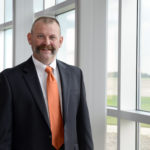 This Act Locally Waco blog post was written by Rob Wolaver. Rob began his professional career in 1989 at Tarleton State University and left Tarleton in 1992 to become the director of Student Activities and Housing at Texas State Technical College Waco. In the 24 years at TSTC, Rob has served in many leadership roles including, Associate Vice President, Vice President, Executive Vice President, Interim President, Provost. Rob is also active in his community where is on the board of Big Brothers/Big Sisters of Central Texas and chair of the Lorena Economic Development Council. Wolaver has served the City of Lorena as a City Council member and Mayor Pro-Tem.
This Act Locally Waco blog post was written by Rob Wolaver. Rob began his professional career in 1989 at Tarleton State University and left Tarleton in 1992 to become the director of Student Activities and Housing at Texas State Technical College Waco. In the 24 years at TSTC, Rob has served in many leadership roles including, Associate Vice President, Vice President, Executive Vice President, Interim President, Provost. Rob is also active in his community where is on the board of Big Brothers/Big Sisters of Central Texas and chair of the Lorena Economic Development Council. Wolaver has served the City of Lorena as a City Council member and Mayor Pro-Tem.
The Act Locally Waco blog publishes posts with a connection to these aspirations for Waco. If you are interested in writing for the Act Locally Waco Blog, please email [email protected] for more information.
(Para leer este artículo en español, pulse aquí)
By Dr. Cristina Cleveland
When I moved to Waco, coming from Mexico City (the biggest and most populated city in the world), the warmth and kindness from Texans (specifically Wacoans) took me by surprise. As a new mother of twins, overwhelmed just to think about doing groceries, I would find myself standing in the line at HEB stunned by people always trying to help me, either with the babies or with my own bags. At the beginning I found this very odd. Now I feel guilty for those unfriendly looks I gave to people trying to say “I don’t need your help, and stay away from my babies.” With time I found out that is just the way Texans are, welcoming, kind, caring and aware of other people’s needs. That has helped me a lot not to miss my beloved country as much I thought I would.
One of the most funny things that happened to me when I was introduced to new people was the normal and expected question “Where are you from?” (From my strong accent you can figure it out right away I’m an outsider.) I would reply with a big smile on my face “from Mexico!” like it was obvious. Not once, not twice, but many times, I heard the reply, “But, you don’t look Mexican.” I was curious enough to ask, “Where did you think I was from?” The answers were all over the place …Italian, Brazilian, Portuguese, Peruvian, Lebanese and so on … At some point I got a little bit of healthy worry about that.
Why can’t people see immediately that I am from Mexico? The answer is because Mexico has infinite faces.
I will try not to overwhelm you with data, but I would like to share with you why being Mexican, for me, represents being a part of a rich culture more than a race.
Most Mexicans are “mestizos” which means we are a “product” of a mixture between Europeans and Mexican Natives (wrongly called Indians). Most of the European heritage comes from Spain, but remember, Spain was invaded by Muslim Moors from 711 to 1492, and a minority of Muslims persisted until 1609 when they were expelled from Spain. During that period of time they had their own “mestizaje.”
Other European influences to “mestizaje” are Germany, France, Portugal, Italy and Ireland, and even small contributions from Sweden, Poland, Greece, England and Russia. Mestizos also have Jewish heritage since the first colonies were settled in Mexico. There were even some North Africans and Arabs in the mix.
Mexico got its Independence from Spain in 1821, but France invaded Mexico in 1861. The French even named a Mexican Emperor, who, by the way, was never recognized as a legitimate Mexican governor. The French left in 1866. Austrians and Belgians arrived by thousands. Another exodus occurred during the Spanish Civil War from 1936 to 1939, when Spaniards were welcome to rebuild their lives in Mexico.
During the Cold War from 1947 to 1991, Mexico was refuge to many Europeans. Mexico has also been a destination for Mennonites from Canada, Sweden, Germany and Holland. Russians, Scots and Italians have founded their own big towns in Mexico, and the “mestizaje” keeps growing.
Now, let’s come back to Mexican Natives. When the Spaniards arrived they found multiple cultures. The most important were the Mexicas or Aztecas, Perépechas, Zapotecos, Tarahumaras, Otomíes, Seris, Mayos (don’t get confused with Mayas), Lacandones, Olmecas, Tehotihuacanos and Mayas.
I hope by now you are not dizzy trying to figure all this out. We Mexicans have this extremely unique pool of genes, that makes us just unidentifiable in terms of physical features.
There is a Genomic Project developed in Mexico that can show us the exact percentages of our ancestry. But, I don’t want to know how much I am from Spain, Sweden, Teotihuacan or Asia. I identify with Mexico. I was born and raised there, and for most of my life I was surrounded by Mexican culture in language, music, gastronomy, clothes, art and hospitality. That’s why I am proudly Mexican.
So, next time you are introduced to a Mexican, don’t be surprised about their looks, but most important, don’t try to figure it out where their genes are coming from!
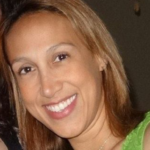 This Act Locally Waco blog post was written by Dr. Cristina Cleveland. Cristina was born and raised in Mexico City. She’s a Pediatric Neurologist and when she moved to Waco back in 2008, she was planning to be a stay-home-mother of their now 7-years-old-twins. Things changed (as usual) and now, after getting a Master’s Degree in Education, she works for the Foreign Language Department in Waco ISD. In her spare time you can see her driving her twins to the library, karate, soccer, swimming and art classes. If she could just get a “time out,” she would probably be walking, swimming, reading or watching a foreign movie.
This Act Locally Waco blog post was written by Dr. Cristina Cleveland. Cristina was born and raised in Mexico City. She’s a Pediatric Neurologist and when she moved to Waco back in 2008, she was planning to be a stay-home-mother of their now 7-years-old-twins. Things changed (as usual) and now, after getting a Master’s Degree in Education, she works for the Foreign Language Department in Waco ISD. In her spare time you can see her driving her twins to the library, karate, soccer, swimming and art classes. If she could just get a “time out,” she would probably be walking, swimming, reading or watching a foreign movie.
The Act Locally Waco blog publishes posts with a connection to these aspirations for Waco. If you are interested in writing for the Act Locally Waco Blog, please email [email protected] for more information.
By Chris McGowan
A downtown Waco renaissance aims to inspire pedestrian activity by creating a concentration of jobs, shopping, entertainment and housing together. Having these activities closer together creates opportunities for walking and builds the kind of community identity that is useful in attracting and retaining businesses and new residents.
The trend toward higher intensity urban development and downtown revitalization in this country has many benefits. Obvious advantages include: higher value land uses, more efficient provision of public services, increased tourism, new restaurants, fun places to shop, great new places to live and opportunities for the community to come together.
Perhaps most important is emerging research that points to America’s post WWII lower density development patterns as a significant contributor to our diminishing health as a nation. A growing body of evidence links increasing rates of diabetes, cancer, obesity, asthma, depression and several other health related problems to community design. Maybe that means the American experiment in community building over the past half a decade or more has made us fat and unhappy.
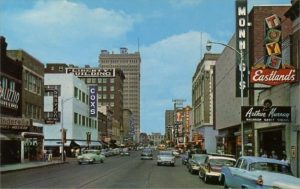 Along these lines I remember a discussion with my father-in-law from back when I first moved here eight years ago. He grew up a few miles outside of Waco. We were talking about new things popping up downtown, and he couldn’t help but hearken back to the “good old days” when he was a kid and his family would drive into town. He told me that back then he was sure that downtown Waco was the biggest, grandest place on earth. This conversation inspired him to take a few minutes to walk down Austin Avenue during his lunch hour, grab a hot dog from George’s and remember the way it used to be.
Along these lines I remember a discussion with my father-in-law from back when I first moved here eight years ago. He grew up a few miles outside of Waco. We were talking about new things popping up downtown, and he couldn’t help but hearken back to the “good old days” when he was a kid and his family would drive into town. He told me that back then he was sure that downtown Waco was the biggest, grandest place on earth. This conversation inspired him to take a few minutes to walk down Austin Avenue during his lunch hour, grab a hot dog from George’s and remember the way it used to be.
As he grew up, downtown changed dramatically. At one point in its history downtown was declared “brain dead”, many of the buildings downtown were boarded up, and new transportation infrastructure investments shifted Waco’s center south or southwest three or four miles.
He told me after his walk that while downtown is not as big today as it was back when he was three and a half feet tall, it still has plenty of potential as a great place. I wasn’t around Waco back then but his story inspires me to look at things from a different perspective and to celebrate the great place Waco is becoming.
Next time you have a few minutes to pull yourself away for just a few minutes, do yourself a favor, park your car and take a walk downtown. Discover something new.
Rediscover downtown on a human scale.
After your walk drop us a note and let us know some of the thoughts inspired by your walk as to what you believe downtown Waco can and should be. We look forward to hearing from you. @1000friendswaco.
Interested in the connection between urban design and human happiness? Join us for Act Locally Waco book club at 6:00 on September 14. We’ll be discussing “Happy City: Transforming Our Lives Through Urban Design” by Charles Montgomery. Email [email protected] for info about how to join us.
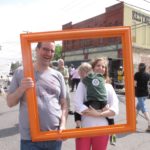 This Act Locally Waco blog post is written by Chris McGowan. Chris is the Director of Urban Development at the Greater Waco Chamber of Commerce. At the Chamber, Chris has been responsible for working with the business community, the public sector and other stakeholders to help revitalize our urban core and strengthen the heart of our city. He is husband of Cristi, dad of Ollie, and for fun he is a charcutier. If you even know what that word means, you are probably eating way too much bacon!
This Act Locally Waco blog post is written by Chris McGowan. Chris is the Director of Urban Development at the Greater Waco Chamber of Commerce. At the Chamber, Chris has been responsible for working with the business community, the public sector and other stakeholders to help revitalize our urban core and strengthen the heart of our city. He is husband of Cristi, dad of Ollie, and for fun he is a charcutier. If you even know what that word means, you are probably eating way too much bacon!
The Act Locally Waco blog publishes posts with a connection to these aspirations for Waco. If you are interested in writing for the Act Locally Waco Blog, please email [email protected] for more information.
By Jenuine Poetess
I recently had the pleasure of interviewing Sarah Frances Moran, founder & editor Yellow Chair Review, Waco’s own Art & Literary Journal.
Jenuine Poetess (JP): Tell me about yourself and how you got into writing.
Sarah Frances Moran (SFM): I’m a native Houstonian. I began seriously writing around the age of fifteen. I always had a love for reading and for song lyrics, and my writing came out of a desire to replicate what I enjoyed and also out of desire to express my feelings. You know fifteen-year-olds have lots of feelings.
Without writing I’d probably be in a bad place. Some people sometimes say that it’s therapy and they’re not completely off base. If I didn’t have this outlet I’d have a stockpile of crazy things stored up in my head.
I always kept my writing to myself or to those closest to me. It never occurred to me to put it out there for the public. I have always attended open mic readings and always sat in the back quietly listening. This past September I attended Waco’s Wordfest and most specifically the 100thousand Artists for Change readings. I met ITWOW ([In The Words of Women) Founder Jenuine [Poetess] at that reading and began attending the ITWOW writing group on Monday nights. That outlet opened the door for me to become comfortable sharing my work. I began participating in open mic readings and also began sending out my work for publication. It’s been a crazy year. I’ve had 57 poems (and counting) published in 34 publications. I’ve even dabbled in some memoir writing and have had a few stories published. It’s been a rollercoaster. This venture into the publishing world fueled my desire to start my own literary arts magazine and that’s how Yellow Chair Review came to be.
I could go on for days about setbacks, but they aren’t important. I think it’s important to be resilient, to look ahead and to focus on goals however small or large they are.
JP: How did you get interested in publishing? Tell us about the journey from idea to where you are now?
SFM: I ran a little literary journal when I was in High School that I would send out via email. It was at the dawn of the internet (giving away my age a bit) before blogs and the boom of the online literary world. It was a small email compiled of writing by friends and acquaintances I’d met online. I was also the editor of the school literary magazine. I’ve always had the desire to do that again, and after sending out my own work to a myriad of places I began seeing patterns of things I wanted to do better. I’m certainly under no illusions that I’ve done anything revolutionary with Yellow Chair Review. I simply wanted to create a space for writers and artists that is diverse and approachable. There’s elitism everywhere, and there’s a ton of elitism in the literary world. I don’t want YCR to ever be that.
So I sat down and wrote the pros and cons of doing this (I’m a serious list maker) and determined the pros outweighed the cons. I wanted to make sure this was something I do properly and do in a way that made folks proud to have their work be a part of it.
JP: Where did the name Yellow Chair Review come from?
 SFM: A poem of course! I wrote a poem in high school titled Yellow Chair. It’s a strange poem dealing with some heavy stuff I was going through at the time. I had this long list of name options. It was almost the Olive Ridley Review. I love sea turtles. Iva, my partner in life and with the review, preferred Yellow Chair.
SFM: A poem of course! I wrote a poem in high school titled Yellow Chair. It’s a strange poem dealing with some heavy stuff I was going through at the time. I had this long list of name options. It was almost the Olive Ridley Review. I love sea turtles. Iva, my partner in life and with the review, preferred Yellow Chair.
JP: How is it going compared to your hopes/expectations?
SFM: It is vastly blasting away my hopes/expectations. I thought I’d have to beg for submissions. I thought it would be a slow progression. It has taken off like a rocket. The submissions have been pouring in, and I’ve had to add staff! I never thought I’d have to ask for help. I could definitely be the one to read all of the submissions and do all the work, but I’ve always wanted YCR to be a space that is prompt. One of the things I hate the most about submitting work is the waiting and waiting and waiting. I don’t want submitters to wait long to hear from us. So I’ve enlisted help so that you get that 1-2 day turn around.
JP: What are some future projects/plans you have for YCR?
SFM: We’ve just added two new features to YCR. We’re going to start accepting submissions of Reviews and we’ll start conducting interviews with contributors. The biggest project I’m planning is a Chapbook contest. I don’t have the details etched out 100% yet. I know for sure I want to do a Poetry Chapbook contest. I’d considered also doing a fiction Chapbook contest too, but I don’t know about it yet. More information about that will hopefully be available by September.
JP: Why is it important to you to create an arts & literary journal? What role does it play in the arts community at large and in Waco?
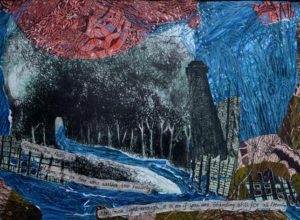
(visual art by Debangana Banerjee; used with permission here and published in YCR, Issue 3)
SFM: I think it’s important to create space. I’ve read a lot of essays and articles about how there are too many literary journals out there and you shouldn’t add to the pile unless you have something extremely unique to bring to the table. I disagree. I think if you’re staying true to the work, to the contributors and doing your best to promote their writing/art you’re doing a huge service to the literary arts community. So many voices go unheard for so many reasons. So create space that helps voices be heard, and do all you can to get those voices out there.
I don’t know that it’s fully doing this yet, but I want YCR to be a space that can say it harbors voices from all over the world, from all walks of life, from all sorts of ideologies, philosophies, races, sexes, orientations, languages etc. Waco itself is more than the majority we see everywhere. I want those underrepresented voices to give YCR the chance to showcase them. Waco has a rich variety of people. YCR can work as a catalyst for those voices.
JP: How can Waco support your work?
SFM: Submitting! I know there are so many poets, writers, and artists in our community, and I would truly love to see their works in YCR. I would love to be able to say that YCR is supportive of the community it’s created in. I can’t say that though if folks don’t give it the chance! So please submit your writings and visual artwork.
Donating! I hate asking for money, but if anyone out there wants to throw donations our way it would be a huge help. Right now YCR is costing my household money, and I don’t mind but it limits what I can do for our contributors. With donations the Chapbook contests can get kickstarted sooner, and we’ll be able to give more in terms of contest winnings. That’s the hugest monetary goal right now. Getting the funds to publish Chapbooks. (You can donate by visiting YCR’s GoFundMe campaign here!)
Reading! Check out the latest issue of YCR via Issuu here.
JP: What else would you like us to know about your work as a poet and as a publisher?
SFM: That I’m here. That I plan to keep myself immersed in this community on a local level and on an international level. That all of our words, our creations, our feelings and thoughts are worthy of having space. That I want to do all that I can to offer that space.
Get Involved!
 To learn more about the submission guidelines and schedule, please click here. To learn more about Sarah and her poetry, please visit her website here. Two blogs to follow are the YCR blog and the Rock the Chair blog, check them out! In September, Sarah will be hosting a workshop on Publishing and Editing at the 2015 WCAF WordFest; join us!
To learn more about the submission guidelines and schedule, please click here. To learn more about Sarah and her poetry, please visit her website here. Two blogs to follow are the YCR blog and the Rock the Chair blog, check them out! In September, Sarah will be hosting a workshop on Publishing and Editing at the 2015 WCAF WordFest; join us!- WordFest Anthology Call for Submissions – accepting entries of poetry and prose now through August 31, 2015. Please visit here for complete details, entry fees, and submission guidelines.
- Central Texas Artist Collective is inviting a statement of intent to participate in the 100 Thousand Artists for Change visual exhibit on Saturday September 26, 2015. Details here.
Waco has a rich array of museums, symphony, theater, community band, arts, and cultural activities. To check out the options, please visit Creative Waco!
 Jenuine Poetess is an artist, visionary, and community organizer. In 2010, she founded In the Words of Womyn (ITWOW), an international, grass-roots, written and spoken-word arts project with chapters throughout Los Angeles, CA; Waco, TX; and Lebanon. Jenuine is the founder of Waco Poets Society and co-founder of the Central Texas Artist Collective. She writes, organizes, and creates rooted in the fierce conviction that holding intentional space, access, and opportunity for all people to foster their creative health is a matter of justice and is a vital asset to the sustainable thriving of communities. She currently lives and poems in Central Texas where she enjoys finding new ways to disrupt the homeostasis of her city. You can contact her at: j[email protected].
Jenuine Poetess is an artist, visionary, and community organizer. In 2010, she founded In the Words of Womyn (ITWOW), an international, grass-roots, written and spoken-word arts project with chapters throughout Los Angeles, CA; Waco, TX; and Lebanon. Jenuine is the founder of Waco Poets Society and co-founder of the Central Texas Artist Collective. She writes, organizes, and creates rooted in the fierce conviction that holding intentional space, access, and opportunity for all people to foster their creative health is a matter of justice and is a vital asset to the sustainable thriving of communities. She currently lives and poems in Central Texas where she enjoys finding new ways to disrupt the homeostasis of her city. You can contact her at: j[email protected].
The Act Locally Waco blog publishes posts with a connection to these aspirations for Waco. If you are interested in writing for the Act Locally Waco Blog, please email [email protected] for more information.

